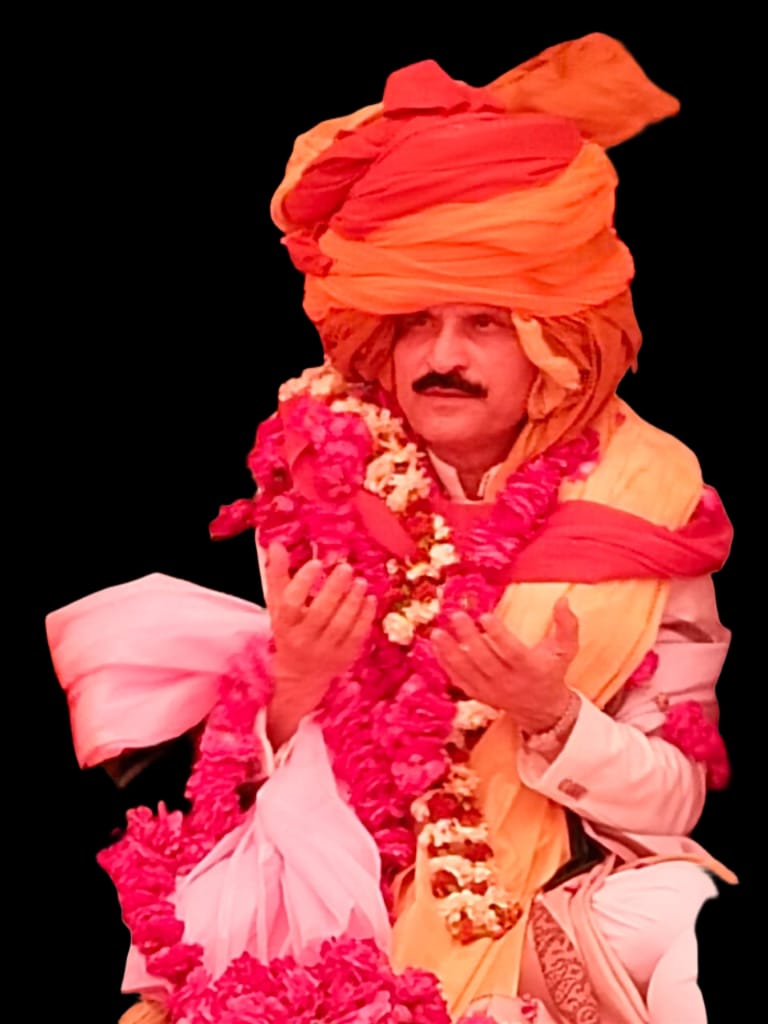
Asif Zaman Rizvi
The historic soil of Fatehpur Sikri, renowned for its exquisite architecture, illustrious history, and spiritual significance, is once again witnessing a glorious spiritual renaissance. This land — a long-standing confluence of mysticism, Sufism, and social harmony — now stands at the threshold of a new chapter. The Dargah of Hazrat Sheikh Salim Chishti (RA), a beacon of spirituality, love, and brotherhood for centuries across India, now strides towards a fresh awakening under the stewardship of its 17th successor, Peerzada Arshad Azim Faridi Chishti. His ascension as the Sajjadanashin not only preserves a 500-year-old tradition but infuses it with a modern outlook, social consciousness, and the sharp sensibility of a seasoned journalist.
The Dargah of Hazrat Sheikh Salim Chishti (RA) at Fatehpur Sikri holds an unparalleled place in history. It was here that the mighty Mughal Emperor Akbar, seeking the boon of a son, humbly submitted himself before the saint and received his blessings. When Akbar was finally blessed with a child, he founded the grand city of Fatehpur Sikri upon this sacred soil and, under the saint’s guidance, commissioned the building of the Dargah. In 1576, during the appointment of the Dargah’s first Sajjadanashin, Hazrat Sheikh Badruddin Chishti (RA), Akbar himself was present to solemnize and honor the sanctity of this revered shrine. Moreover, Akbar elevated the sons and descendants of Hazrat Sheikh Salim Chishti (RA) to prominent positions within his court, publicly demonstrating his reverence and veneration for the saint.
Today, the Dargah is not merely a sacred space for India but a living symbol of love, peace, and humanity for the entire world — where devotees, irrespective of caste, creed, color, or gender, arrive with faith in their hearts and prayers on their lips. The lofty stature of this shrine breathes life into India’s spiritual heritage and the inclusive spirit of Sufism
The hallowed ground of Fatehpur Sikri, whose every stone bears testimony to golden chapters of history, remains vibrant with that same spiritual energy. Even now, the winds carry the devotion that once filled the air in Emperor Akbar’s time — a devotion to the great saint who, through his asceticism and prayers, sowed the seeds of love and liberation for all humanity. The Dargah continues to uphold the eternal flame of love and faith for mankind.
This sacred site has never been merely a religious center; it stands as a living testament to India’s Ganga-Jamuni tehzeeb — the composite culture of harmonious coexistence. People from every faith, caste, and creed bow here with equal devotion. For centuries, this epicenter of Sufism has radiated the spirit of love, brotherhood, and social harmony — a spirit that is needed now more than ever. The mantle of preserving and nurturing this priceless heritage now rests in the capable hands of a man known for his simplicity, erudition, compassion, and deep social commitment — Peerzada Arshad Azim Faridi Chishti.
Born into a family where Sufi tradition was not just a faith but a way of life, Arshad Faridi Chishti imbibed spirituality and selfless service from a young age. His father, Peerzada Rais Miyan Faridi Chishti, himself served the Dargah devotedly from childhood. In such an atmosphere, Arshad Sahib developed a profound spiritual grounding alongside distinguished modern education. His more than three-decade-long career in journalism — with reputed newspapers like Dainik Jagran, Amar Ujala, and Rashtriya Sahara — gave him a penetrating understanding of social concerns. His writings became the voice of the marginalized, the oppressed, and the overlooked, embodying journalism as a powerful vehicle for positive social transformation.
Now, as Sajjadanashin, his multi-faceted persona breathes new life into the Dargah’s traditions. His vision transcends mere spiritual leadership; he aspires to transform the Dargah into a vibrant social center where ideals of love, service, and national unity are celebrated and strengthened. His unpretentious warmth and innate humility naturally endear him to every visitor. His smile carries the soul of Sufi culture — a journey from one heart to another, unmarred by discrimination or hierarchy.
The sacred Rasm-e-Sajjadagi and Jansheeni ceremony witnessed the convergence of distinguished Sufi saints, religious leaders, and dignitaries from across the country. Among those gracing the event were Sayyid Nasiruddin Chishti, the successor of Ajmer Sharif; Sahibzada Sayyid Hamza Miyan Chishti; Peer Farid Nizami of Nizamuddin Auliya Dargah; Nayyar Miyan of Rudhauli Dargah; Ali Shah Miyan of Kaliyar Sharif; and many others from Hyderabad and beyond. Political figures such as BJP MP Rajkumar Chahar, Samajwadi Party MP Muheebullah Nadvi, and former MP Ashok Tanwar also enhanced the occasion with their presence.
Arshad Faridi Chishti is the illustrious son of Peerzada Rais Miyan Chishti — himself a highly revered Sajjadanashin whose influence reached deeply into social, religious, and political spheres. When Rais Miyan Chishti was entrusted with the sacred responsibility at the tender age of seven in 1943, he upheld the Chishti tradition with unmatched dignity and depth. Now, after a span of 80 years, this mantle has been ceremoniously and unanimously bestowed upon Arshad Faridi Chishti.
This succession is not a mere familial formality; it is the continuation of a profound spiritual journey — a path rooted in service, devotion, and humanitarian guidance. With Arshad Faridi at its helm, this tradition witnesses a synthesis of spirituality with scientific reasoning, of age-old custom with progressive interpretation, and of religious leadership with social revolution.
Not only a spiritual leader, Arshad Faridi Chishti is a seasoned journalist who served prestigious newspapers for 32 years. As editor of Roznama Mera Watan (Urdu) and Metro Media (Hindi), his journalism sought not just to report news but to illuminate the truths hidden in society’s shadows. He championed the causes of minorities, exposed layers of corruption, narrated tales of social injustice, and advocated for the rights of the marginalized — living journalism as a mission rather than a profession.
Now, when this vision merges with the spirit of Sufism, it generates a new force. The love, devotion, and equality at the heart of Sufi thought blend with Arshad Faridi’s social commitment, giving rise to a broader and richer expression. His elevation as Sajjadanashin is not just a religious event but a transfer of a profound ideology — one that embraces modernity not as an adversary but as a complement to tradition. In an age marred by religious intolerance and division, the voice from Fatehpur Sikri resounds with a message of dialogue, inclusivity, and concord.
Gifted with Aquarian traits — creativity, independence, humanitarian sensitivity, and progressivism — Arshad Faridi Chishti appeals not only to the devout but to intellectuals, politicians, and administrators alike.
His greatest achievement lies in tirelessly working for communal harmony and peace in and around Fatehpur Sikri. His active involvement with the Waqf Board, local administration, and Dargah management underscores his identity as both a religious leader and a social reformer. Under his spiritual tenure, the Dargah will not remain a mere sanctuary of faith but will blossom into a vibrant hub for dialogue, where diverse religions, ideologies, and cultures will converge.
Honored nationally and internationally, Arshad Faridi Chishti’s accolades include the Best Journalist Award by the Delhi Assembly (2003), the Matrashri Award (2005), and recognitions from the Ezaz Rizvi Memorial Society (2018) and the All India Minority Forum (2022). He represented India at the United Nations World Peace Conference in Bangkok (2003) and the World Hindi Conference in Johannesburg, South Africa — experiences that will further globalize the prominence of the holy Dargah.
As a member of India’s National Council for Promotion of Urdu Language (NCPUL), Arshad Faridi Chishti’s influence extends into linguistic and cultural dialogues, providing fertile ground to promote Sufi literature, Urdu poetry, and spiritual education. Through his efforts, the Dargah shall evolve into not just a place of worship but a pulsating center of cultural and educational renaissance.
Now, as he assumes his role as Sajjadanashin of this revered center of Sufism, it signals not just the continuation of a tradition but the dawn of a new era — an era where tradition harmonizes with modernity, where spirituality intertwines with social awakening, and where leadership radiates the spirit of humble service. Under his visionary guidance, the Dargah of Fatehpur Sikri shall not only remain a nucleus of faith but will rise as an institution embodying education, dialogue, social justice, and communal harmony.
This narrative beautifully captures how traditions become even more meaningful when infused with fresh thought and new vigor — and Arshad Faridi Chishti stands as a glowing symbol of this renaissance.
He deeply understands the profound relevance of Sufi culture in a diverse country like India. He believes that the essence of Sufism lies in love, tolerance, and unity — invaluable treasures in today’s tense world. His vision for the Dargah encompasses not just spiritual elevation but initiatives in education, healthcare, and social welfare: scholarships for students, empowerment programs for women, and free medical camps for the needy.
His vision is truly inclusive, establishing him not only as a leader for Muslims but as a guide for all humanity. In his view, the Dargah is a lighthouse piercing through the darkness of hatred with the light of compassion and love. He asserts that true Sufi tradition does not create boundaries but bridges hearts.
That is why Sufi saints, religious scholars, and social activists from across the nation celebrate his leadership. With this new chapter at Hazrat Salim Chishti’s Dargah, Fatehpur Sikri is once again imprinted upon the map of India’s national consciousness. From here, the resounding echoes of love, service, and unity will inspire generations to come.
The ceremony concluded with heartfelt prayers by Peerzada Rais Miyan Faridi Chishti for the welfare of all humanity, followed by a grand traditional feast (langar) where dal-bati-churma and thandai delighted every guest, reaffirming that the Dargah is not only a center of spirituality but a living celebration of love and fraternity.
Summing up this entire occasion is a soul-stirring quote from Arshad Faridi Chishti:
“A Sufi is not one who towers above the minarets;
A true Sufi is one who sows seeds of love and compassion in every heart’s soil.”
And thus begins a new chapter…

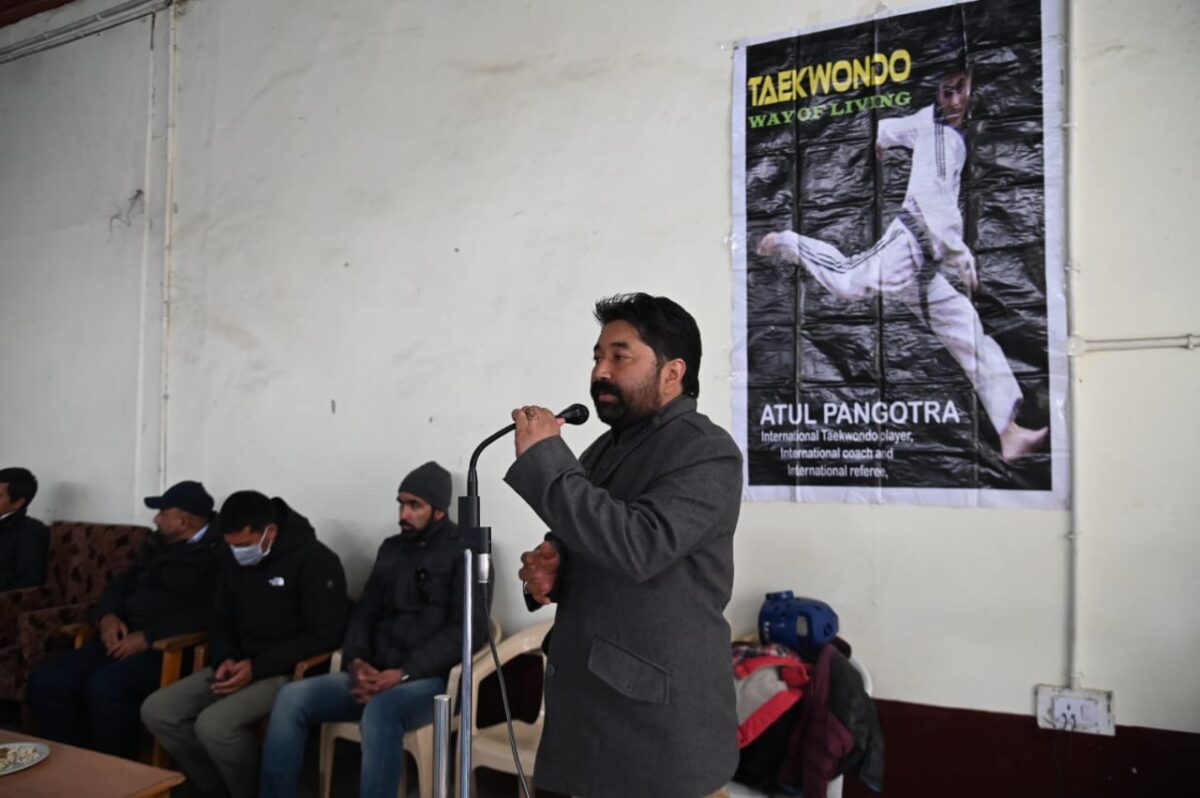

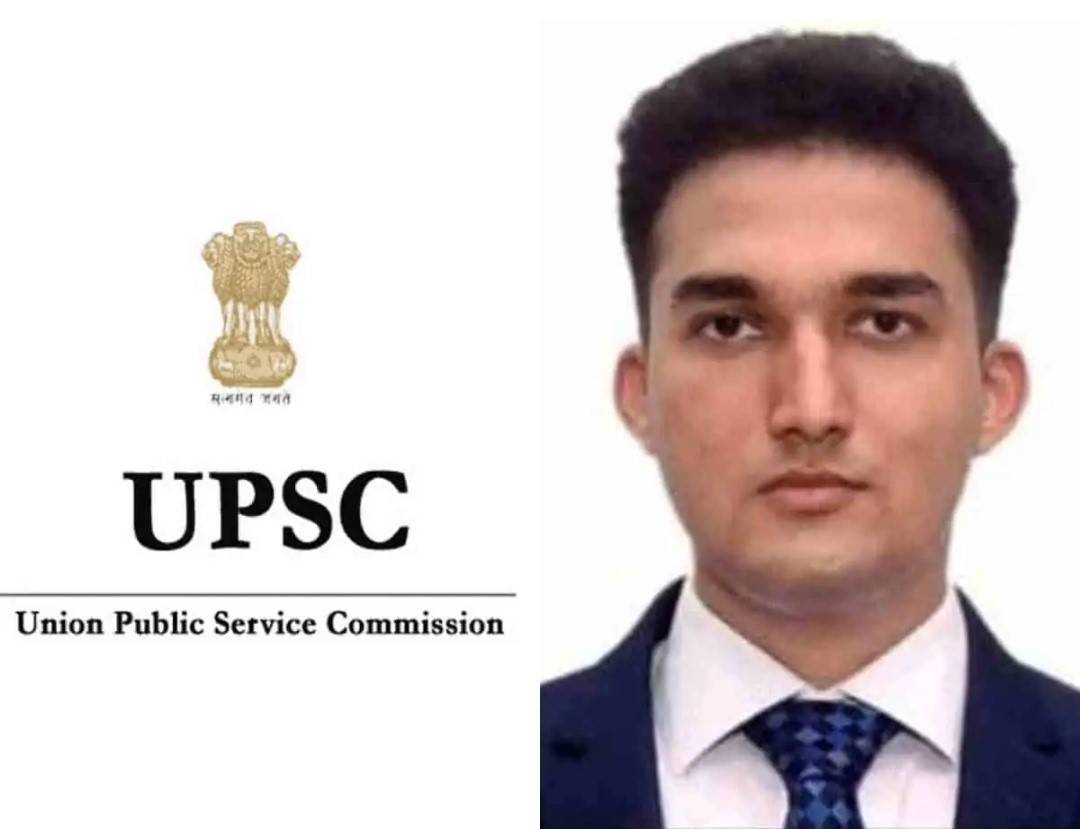
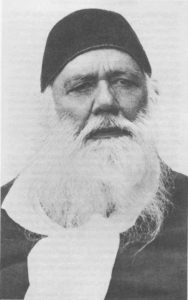 We all are aware of Sir Syed Ahmad Khan’s mammoth efforts in shaping the educational landscape of Indian Sub continent in the 19th century by establishing the scientific society, Victoria College, Persian School in Moradabad and the establishment of Mohammedan Anglo Oriental College in Aligarh, which in 1920 became the Aligarh Muslim University. These establishments help Indians specially those who belong to marginalised section of the society to achieve great heights in their educational pursuit and also help them in becoming better human beings. Sir Syed Ahmad Khan was a visionary whose foresightedness helped Indians in mastering English language and thus creating their niche in their own country where they were outclassed and outsmarted by colonial masters because of their proficiency in a universal language.
We all are aware of Sir Syed Ahmad Khan’s mammoth efforts in shaping the educational landscape of Indian Sub continent in the 19th century by establishing the scientific society, Victoria College, Persian School in Moradabad and the establishment of Mohammedan Anglo Oriental College in Aligarh, which in 1920 became the Aligarh Muslim University. These establishments help Indians specially those who belong to marginalised section of the society to achieve great heights in their educational pursuit and also help them in becoming better human beings. Sir Syed Ahmad Khan was a visionary whose foresightedness helped Indians in mastering English language and thus creating their niche in their own country where they were outclassed and outsmarted by colonial masters because of their proficiency in a universal language. 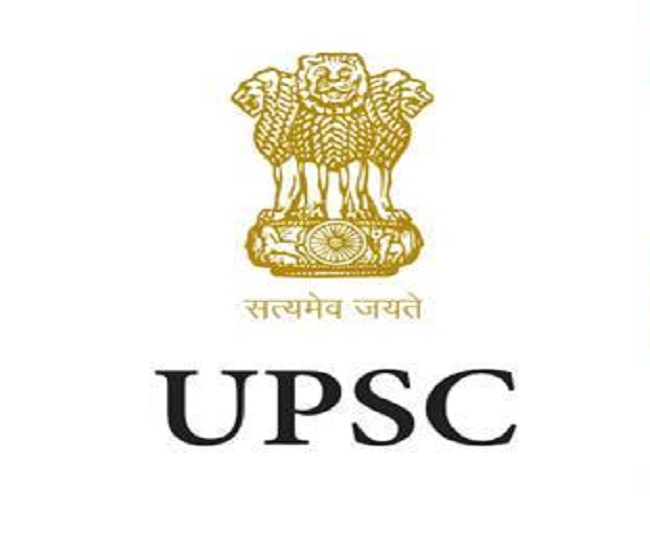
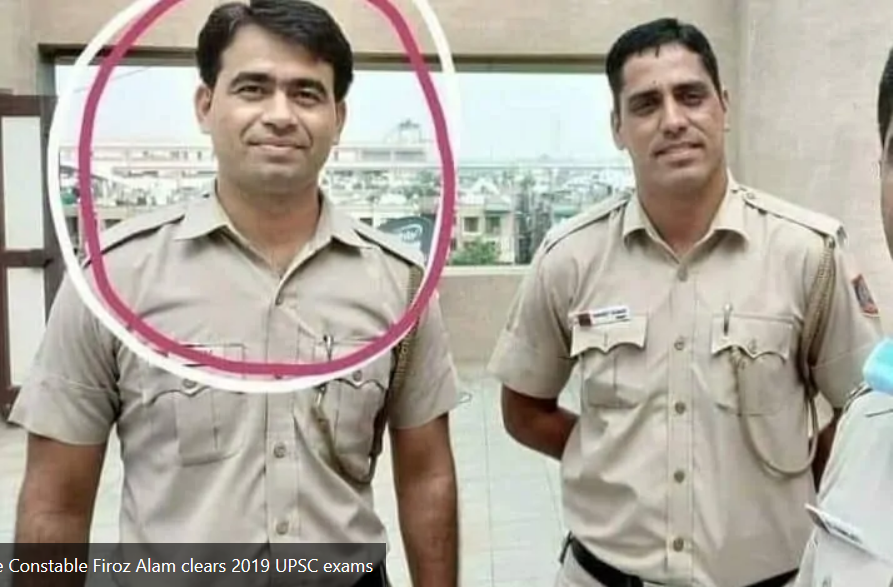
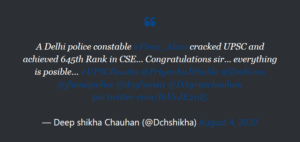
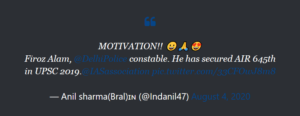
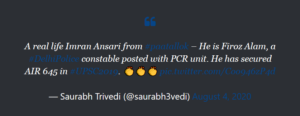
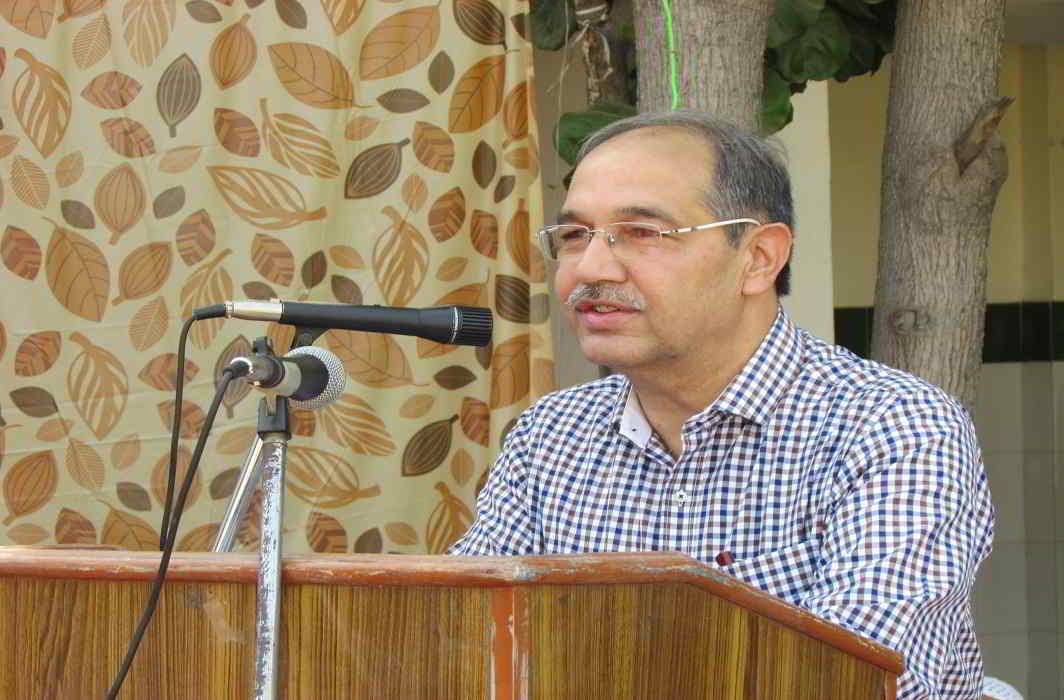 Dear Tariq Mansoor Sb,
Dear Tariq Mansoor Sb,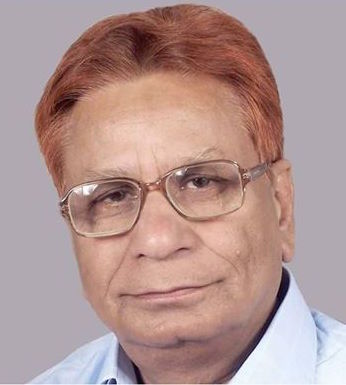
 “If a country is to be corruption free and become a nation of beautiful minds, I strongly feel there are three key societal members who can make a difference. They are the father, the mother and the teacher”- Dr. APJ Abdul Kalam
“If a country is to be corruption free and become a nation of beautiful minds, I strongly feel there are three key societal members who can make a difference. They are the father, the mother and the teacher”- Dr. APJ Abdul Kalam